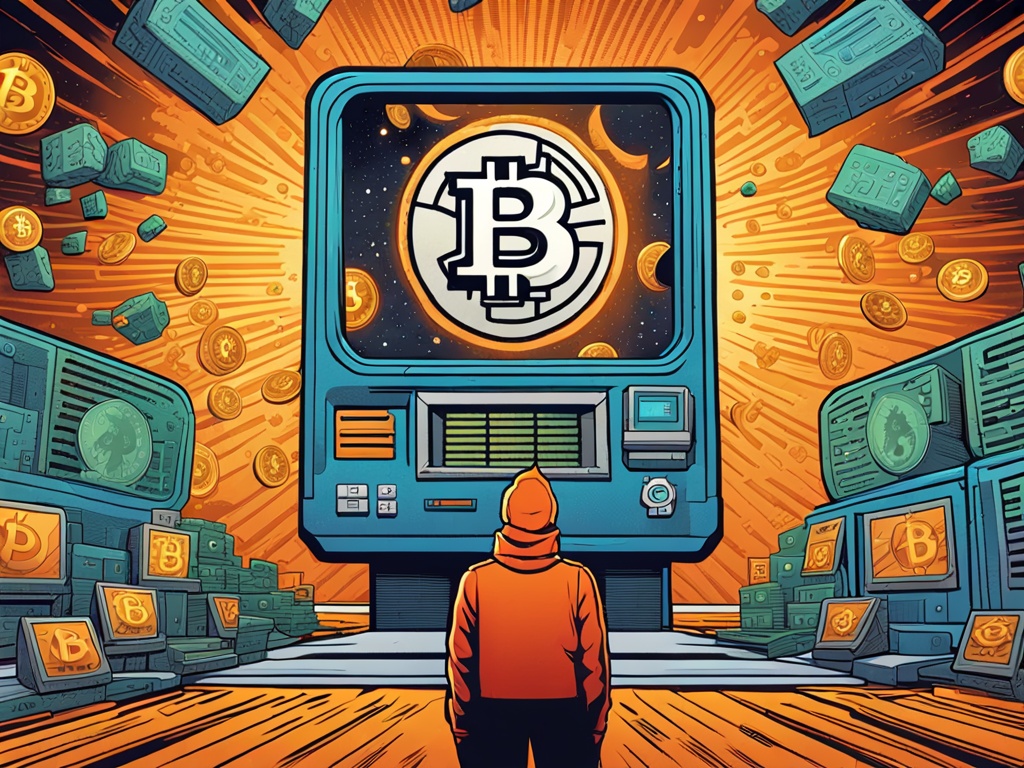Uniswap’s Ambitious Move: Unichain and Growing DeFi Horizons 🚀
As we navigate through developments in the crypto landscape this year, Uniswap is setting the stage to launch Unichain. This innovative Layer 2 solution, designed with a focus on decentralized finance (DeFi), will leverage the OP Stack. The public mainnet introduction is anticipated to happen in early 2025, promising marked improvements in scalability and transaction efficiency.
Optimized Through Testing: The Journey of Sepolia Testnet 🔬
Since October, the Unichain initiative has undergone rigorous testing on Ethereum’s Sepolia testnet. The results so far are promising, with the testnet handling an impressive 50 million test transactions and deploying over 4 million smart contracts. It boasts a remarkable uptime of more than 99% across vital services.
Looking ahead, January 6, 2025, marks a significant milestone as planned maintenance on the Sepolia testnet will activate permissionless fault proofs. This important feature will be included from the very start of the mainnet launch. By enabling users to validate the blockchain’s status and contest any suspicious withdrawals, these proofs enhance overall security and reliability, serving as essential protective measures against fraudulent activities.
Game-Changing Features of Unichain ⚙️
Among the exciting features is Flashblocks, which aims to achieve block times of only 250 milliseconds, ensuring swift transactions. To promote a decentralized architecture and diminish risks associated with single-sequencer systems, Unichain will implement the Unichain Validation Network. This network will comprise independent node operators, reinforcing the integrity of the network.
Moreover, Unichain plans to utilize Rollup-Boost, a secure block-building platform designed by Flashbots, to enhance its rollup functionalities. With its launch, Unichain will integrate into Optimism’s Superchain ecosystem while Uniswap Labs contributes to the OP Stack, solidifying its influence in the rapidly expanding DeFi sector.
Record-Breaking Volume: Uniswap’s Growing Popularity 📈
Uniswap’s recent accomplishments on Ethereum layer 2 networks are noteworthy. Just last month, the decentralized exchange achieved a record monthly trading volume, processing an astounding $38 billion across prominent Ethereum layer 2 platforms including Base, Arbitrum, Polygon, and Optimism. This figure illustrates a significant revival of interest in DeFi, eclipsing the previous record set in March by $4 billion.
In tandem with these achievements, the Uniswap Foundation has provided insight into its financial standing. The foundation reported holding $36.81 million in cash and stablecoins while maintaining a modest reserve of 680,000 UNI tokens. This financial oversight indicates a strategic approach to supporting operational needs and granting initiatives.
Financial Health and Strategic Allocations 💼
The foundation aims to stabilize its financial activities through the end of 2025, allocating $26.12 million for grants and $10.69 million for operational expenditures. Highlighting its commitment to growth, the foundation approved over $3.2 million in new grants during Q2 alone, demonstrating its proactive approach to funding projects and supporting the broader ecosystem.
During the second quarter, the operating expenses totaled $1.6 million. A breakdown shows that 8.2% of expenditures were devoted to advertising and marketing, while 47.9% went towards payroll, and 35.2% was allocated for professional fees. This structured financial management reflects the foundation’s intent to nurture long-term growth within the Uniswap framework.
Hot Take: Uniswap’s Future in DeFi 🌟
Uniswap’s strategic advancements with the introduction of Unichain and its record-breaking trading volumes signal a significant upward trend in the DeFi space this year. The integration of innovative features and a strong financial framework positions Uniswap as a formidable player in the crypto market. As the foundation moves towards 2025, its commitment to decentralization, functionality, and security will undeniably play a crucial role in shaping the future of decentralized finance.





 By
By
 By
By
 By
By

 By
By